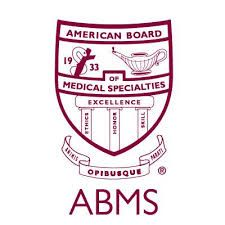Dr. Chu is on Doximity
As a Doximity member you'll join over two million verified healthcare professionals in a private, secure network.
- Gain access to free telehealth tools, such as our “call shielding” and one-way patient texting.
- Connect with colleagues in the same hospital or clinic.
- Read the latest clinical news, personalized to your specialty.
Office
200 Lothrop St
Rm A608
Pittsburgh, PA 15213Phone+1 412-383-7498Fax+1 412-624-5610
Summary
- Dr. Charleen Chu is a pathologist in Pittsburgh, PA and is affiliated with multiple hospitals in the area, including UPMC Presbyterian Shadyside and UPMC Children's Hospital of Pittsburgh. She received her medical degree from the Duke University Medical Scientist Training Program and has been in practice 26 years. She specializes in ophthalmic pathology, neuropathology, anatomic pathology and the molecular pathogenesis of neurodegenerative diseases. She has more than 100 publications and over 30,000 citations.
Education & Training
 Duke University HospitalResidency, Pathology-Anatomic and Clinical, 1994 - 1998
Duke University HospitalResidency, Pathology-Anatomic and Clinical, 1994 - 1998 Duke University School of MedicineClass of 1994
Duke University School of MedicineClass of 1994 Duke University HospitalFellowship, Neuropathology
Duke University HospitalFellowship, Neuropathology
Certifications & Licensure
 PA State Medical License 1998 - 2026
PA State Medical License 1998 - 2026 NC State Medical License 1997 - 2025
NC State Medical License 1997 - 2025 American Board of Pathology Anatomic Pathology
American Board of Pathology Anatomic Pathology American Board of Pathology Neuropathology
American Board of Pathology Neuropathology
Awards, Honors, & Recognition
- Elected Member The American Society for Clinical Investigation, 2010
Publications & Presentations
PubMed
- Immune responses in rodent whole eye transplantation: elucidation and preliminary investigations into rejection diagnosis and monitoring.Bing Li, Yong Wang, Charles R Owens, Touka Banaee, Charleen T Chu
Frontiers in Immunology. 2025-01-01 - 1 citationsWomen in Autophagy: an initiative to promote gender parity in science.Mericka McCabe, Patricia Boya, Ruey-Hwa Chen, Charleen T Chu, Maria Isabel Colombo
Nature Cell Biology. 2024-12-01 - 44 citationsInternational consensus guidelines for the definition, detection, and interpretation of autophagy-dependent ferroptosis.Xin Chen, Andrey S Tsvetkov, Han-Ming Shen, Ciro Isidoro, Nicholas T Ktistakis
Autophagy. 2024-06-01
Grant Support
- Dendrite regulation by the mitochondrial kinase PINK1: Implications for PD/LBDUNIVERSITY OF PITTSBURGH AT PITTSBURGH2017–2029
- Dendrite regulation by the mitochondrial kinase PINK1: Implications for PD/LBDUNIVERSITY OF PITTSBURGH AT PITTSBURGH2017–2029
- Dendrite regulation by the mitochondrial kinase PINK1: Implications for PD/LBDUNIVERSITY OF PITTSBURGH AT PITTSBURGH2017–2029
- Dendrite regulation by the mitochondrial kinase PINK1: Implications for PD/LBDUNIVERSITY OF PITTSBURGH AT PITTSBURGH2017–2029
- Protein homeostasis in a frontotemporal dementia iPSC modelUNIVERSITY OF PITTSBURGH AT PITTSBURGH2022–2025
- Protein homeostasis in a frontotemporal dementia iPSC modelUNIVERSITY OF PITTSBURGH AT PITTSBURGH2022–2025
- Neuronal quality control and neuroprotection in tauopathiesUNIVERSITY OF PITTSBURGH AT PITTSBURGH2007–2025
- PINK1 Regulation Of Neuronal And Mitochondrial HomeostasisNational Institute Of Neurological Disorders And Stroke2011
- Neuropathology CoreNational Institute Of Neurological Disorders And Stroke2009–2011
- PINK1 Regulation Of Neuronal And Mitochondrial HomeostasisNational Institute Of Neurological Disorders And Stroke2010
- Training In Proteomics Of Novel Kinase Substrates For NeurodegenerationNational Institute On Deafness And Other Communication Disorders2007
- Regulation Of Pten-Induced Kinase 1 (Pink 1)National Institute Of Neurological Disorders And Stroke2006–2007
- The Parkinsonian 6 Hydroxydopamine ModelNational Institute Of Neurological Disorders And Stroke2001–2004
Viewing the full profile is available to verified healthcare professionals only.
Find your profile and take control of your online presence:










